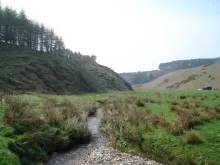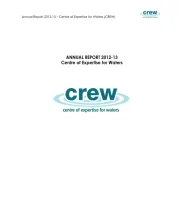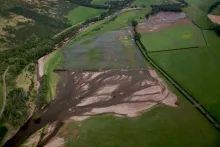Fate of terrestrial carbon in the Scottish coastal environment
Each year approximately 400 - 430 x 1012g of terrestrial organic carbon is transported from the continents via rivers to the global ocean. Yet it is estimated that only a very small fraction of the organic carbon dissolved in the ocean, or preserved in underlying sediments, seem to be of terrigenous origin, with about 10% of the riverine input of organic carbon (i.e. 43 x 1012g) actually buried in shelf sediments each year. So, the question is where does the remaining 90% of the terrestrial organic carbon go?









